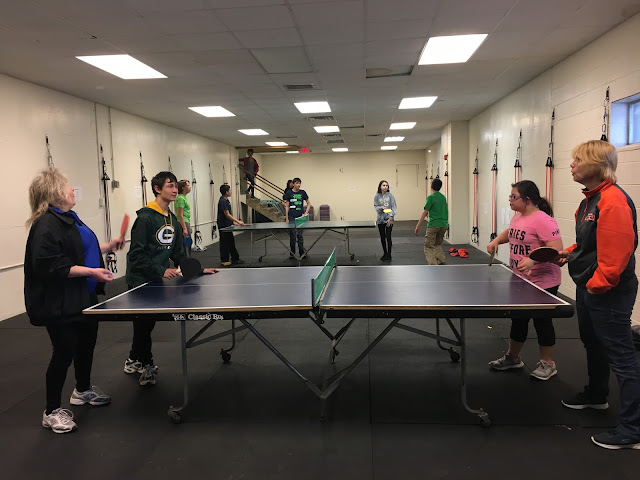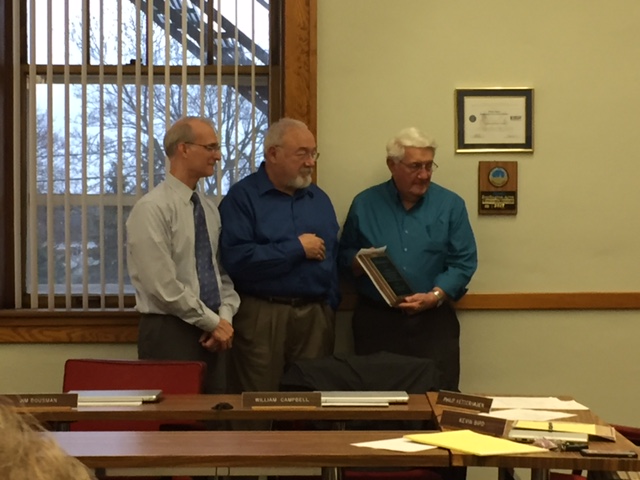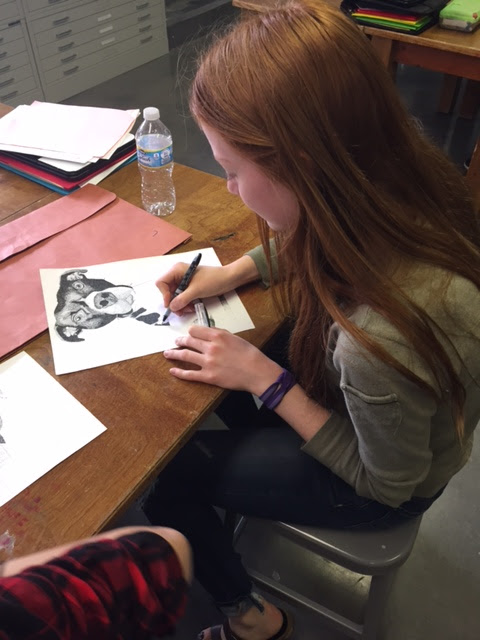Education is a tricky proposition; teachers walk a fine line between objectivity and compassion. Lucas's teachers objectively described his problematic behaviors (squirmy and difficult to reach) as well as his positive traits (energetic), yet they also tried to be compassionate in noting that Lucas needed extra attention and care.
What slowed Lucas's progress wasn't lack of compassion, but teachers' tendency to create labels for him, especially labels reflecting problems. Traditionally, educators working with a student seen as having special needs begin by identifying that student's deficits—for instance, calling Lucas hyperactiveand possibly reluctant to learn to read and write. Too often, these deficits are thought to be the reason the student shows little growth in literacy. Typically, an education team—including concerned and caring teachers—conducts a referral and evaluation process to place the student in one of the 13 federal categories of disabilities under the Individuals with Disabilities Education Act (IDEA). Lucas was duly identified as a child with specific learning disabilities.
So What's the Problem?
The trouble is that when we identify students by their disabilities, we unwittingly put them at risk for linguistic overprotection and covert segregation. Linguistic overprotection, a term used in deaf studies that also applies to children with other learning differences, occurs when adults reduce the linguistic and cognitive complexity of their communications with a child, thus limiting that child's opportunity to learn more advanced language (Calderon & Greenberg, 2003).
Lucas experienced the phenomenon of adults "talking down" to him—not only with spoken language, but also with literacy. During guided reading, he was stuck reading kindergarten-leveled books containing repetitive patterns. Although he was multilingual (which can lead to reading errors that don't imply any underlying disability), his teachers expected an accuracy rate of 98 percent in reading aloud. Lucas always had excellent comprehension, but teachers corrected his small mistakes as he read—which demotivated him.
The reality that many students with disabilities are placed in educational settings apart from their nondisabled peers—effectively segregated—is another problem. The pattern of within-school segregation based on achievement or perceived ability has persisted for decades without much public outcry, although millions of students, teachers, and administrators observe it daily, and it's well documented (Tyson, 2013). Because students from minority backgrounds are disproportionately placed in special education, many observers believe that overt racial segregation has given way to more covert forms of racial segregation under the guise of "disability services" (Ferri & Connor, 2005).
Lucas, for instance, was placed in a resource room for half of his school day. His literacy instruction, unlike that provided to other 2nd graders, involved sight words, phonics, and vocabulary presented in a fragmented manner. He received services from a reading intervention teacher, speech and language therapist, social worker, and occupational therapist—all of whom had expertise in their fields, but each of whom worked in a vacuum. Thus, Lucas spent very little time in his general education classroom with his peers. Missing out on an environment filled with language and literacy, he fell further behind in reading and writing—and also in mathematics, science, and social studies.
Toward True Inclusion
The good news is that this kind of downward literacy trajectory can be reversed for students—even those with medically identified disabilities—when educators focus on viewing a student through the lens of his or her strengths (and weaknesses) as an emerging and developing reader and writer—rather than through the lens of labels, classifications, and categories. With this focus, we may even realize that some labels are wrong.
For instance, by thoughtfully observing and recording Lucas's reading, his teacher discovered that Lucas had no idea what to do when he got stuck on unknown words. Lucas appeared hyperactive because he would give up, become squirmy, and even get up to find something else to do. Because he was constantly asked to read orally and was persistently corrected on miscues, even when they didn't change the text's meaning, he became reluctant to read with an adult. He was thought to have dyslexia because he tried to read ahead for the object and then back for the subject and verb, he couldn't keep track of his tenses, and he mixed up the suffixes -ed, -ing, and -s. However, these miscues turned out to be syntactical transfers from the multiple languages his family spoke at home and in their community. Although Lucas couldn't yet read in his native language, he—like many children—transferred what he knew from speaking and listening in that language (including what he knew about language itself) to his reading in English.
With a mindset that looks for opportunities in literacy instruction and practice, as opposed to labels and categories, educators can offer inclusive, authentic, and purposeful opportunities for students' literacy development—true inclusion. Although the terms mainstreaming and inclusion may be used interchangeably, there are underlying differences in their meanings. Mainstreaming permits students with disabilities to participate in general education only if their academic achievement or behavior is at an acceptable level. By contrast, full inclusion and genuine acceptance of diversity go hand in hand.
As Thomas Hehir asserts, the "recognition of disability as a basic diversity issue—that disability is not to be pitied, patronized, or vilified—is important in helping disabled students feel comfortable with their disabilities" (2005, p. 18). Students who feel comfortable with their identity are more likely to progress in literacy and in their school career. Including children with a range of disabilities in mainstream classes also helps general education teachers figure out how to improve teaching and learning for all students (Henderson, 2011).
Full inclusion in a language-rich and literacy-rich environment must be thoughtfully planned, however. It's not just a matter of allowing students with disabilities into general education classrooms and deeming the classroom inclusive; educators need to give these students key supports. The following practices help provide good literacy instruction for students with all kinds of learning differences.
Universal Design for Learning
Educators must first acknowledge that all students, including those with identified disabilities, come from distinct cultural, economic, linguistic, and academic backgrounds. Each student will be in a different place in exploring language and literacy. Universal Design for Learning (UDL) is a process by which curricular goals, methods, materials, and assessments are from the beginning designed—intentionally and systematically—to address individual differences in learners (National Center on Universal Design for Learning, 2014). The approach recognizes that children's developmental timetables don't conform to the calendar. There's no need to impose lock-step distinctions between grades, categories, or even benchmark levels. Rather, educators should try to offer continuous progress for all students. Even the Common Core State Standards recognize that "no set of grade-specific standards can fully reflect the great variety in abilities, needs, learning rates, and achievement levels of students in any given classroom" (2012).
Teachers can apply UDL principles in many ways as they plan literacy lessons and activities. They can make available a variety of engaging children's books and other print materials at a wide range of levels; use dynamic and flexible groupings in their small-group instruction; and always provide clear, concise directions and identify learning goals (using visuals and examples). At each center and for each assignment, teachers should offer developmentally appropriate, authentic, enticing materials students can practice with. Such materials should be "open-ended" or able to be used by all students, such as blank notebooks, an array of writing tools, word lists, and computers.
Kid-friendly furnishings like beanbag chairs and practices that soften the hubbub of a classroom—such as organizing materials neatly and placing centers strategically—also support students with learning challenges. A curriculum and classroom designed according to UDL principles, for instance, would allow Lucas to learn in a language-rich and literacy-rich environment alongside his peers.
Accommodations
Accommodations are tools (beyond the use of universal design) that help students with learning differences access the same instruction and materials as their general education peers—things like interpreters for students who use American Sign Language, a scribe or speech-to-text software for a student with physical impairments, Braille for a learner with visual impairments, or captioning for students with hearing loss or deafness. Such tools go beyond some conceptions of UDL because their use is specifically designed and helpful for learners with medically identified disabilities in a class.
Accommodations are designed to level the playing field for students with disabilities. In contrast, modifications change the curriculum or expectations for these students. Modifications can certainly be made for some students, such as those with severe cognitive impairment, but they should be used judiciously (or not at all) for most students, so that opportunities for learning and growing aren't lost. When a classroom truly uses universal design, many kids with differences, like Lucas, won't need accommodations or modifications.
Literacy Opportunities Within the Classroom
Most literacy blocks are intrinsically based on universal design principles. All students can listen to their teacher read aloud, with or without accommodations; Lucas certainly could. All students can partake in shared reading with their peers, and almost all students can read independently. All students can explore sight words, phonics, syntax, and vocabulary presented in an engaging manner at centers or in small groups. And all children should participate in guided reading and in writing workshops—ideally within the classroom.
When students with disabilities are pulled out of classrooms or moved to the back of the room during literacy blocks, they get the message that they don't belong in the larger community or that their reading and writing is different or substandard. While they work only on isolated skills, they miss opportunities for developing in an environment filled with meaningful language and literacy.
When Lucas's teachers switched their methods—ensuring that his classroom used a UDL approach and returning him to his classroom literacy block, thus reducing the amount of time he had to read aloud to an adult in an exacting manner—he was finally able to make progress.
Metalinguistic Awareness
Metalinguistic awareness is "a conscious awareness on the part of a language user of language as an object in itself" (Harris & Hodges, 1995, p. 153). Children who are aware early on of language as a system and who have a sense of that system's rules have an advantage. Many students come to school knowing how books work and what a letter and a sentence are; they even play around with rhymes and make up "knock knock" jokes. However, some, like Lucas, need opportunities for developing metalinguistic awareness.
It's best to develop this awareness within the classroom. There's no need to provide monotonous seatwork; instead, support students in talking about and reworking language in a delightfully explorative manner through word play, jokes, poetry, and books using lexical and structural riddles. Once Lucas began engaging in such exploration, he gained an understanding not only of how English works, but also of how the multiple languages used in his home operate.
Individualized Instruction
Teachers who provide high-quality reading lessons are experts not only on literacy teaching methods, but also on the specific instructional needs of each student. They do frequent formative assessment of each student's language and literacy strengths and weaknesses. Without such up-close knowledge, schools can actually create achievement gaps as a struggling student goes through various "evidence-based" programs on a trial-and-error basis throughout his or her school career with little chance of catching up.
Effective teachers make frequent running records as a student reads aloud, recording errors, self-corrections, and strategies used. They document the depth of each reader's comprehension after both oral and silent reading. They use this information to make instructional decisions for upcoming small-group lessons, thus ensuring meaningful and purposeful growth in reading. Teachers can thus increase the complexity of texts they offer struggling readers in an emotionally sensitive but challenging manner, fostering resiliency and problem-solving skills.
Good teachers offer strategies tailored to the reader's needs. Lucas, for instance, needed to know what to do when he got stuck on unknown words. He needed instructional support with his tenses—and help figuring out his subject, verbs, and objects—when reading English. Arbitrarily placing him in a core reading program that emphasized phonics, sight words, or fluency would do him no good.
Shifting Our View
Although many educators believe it's necessary to define certain students as at-risk, a dangerous outcome of this practice is that these students—by virtue of their non-normative race, social class, language, or ability identification—get positioned as deficient and in need of specialized treatment (Brown, 2016). Instead of pushing labels and classifications to the forefront, let's look at the needs of each emerging reader, acknowledging that every child learns differently even when each is aiming for the same learning outcome.
By advocating for inclusive, language-rich, and literacy-rich classrooms for everyone, educators can come to understand the multiple paths that diverse students use to strengthen their language and literacies. Now more than ever, we need to view all young readers and writers primarily as readers and writers, not as students with particular disabilities.
References
Brown, K. D. (2016). After the "at-risk" label: Reorienting educational policy and practice. New York: Teachers College Press.
Calderon, R., & Greenberg, M. (2003). Social and emotional development of deaf children. In M.A. Karchmer, et al. (Eds.), Oxford handbook of deaf studies, language, and education (pp. 177–189). Oxford: Oxford University Press.
Ferri, B. A., & Connor, D. J. (2005). Tools of exclusion: Race, disability, and (re) segregated education. Teachers College Record, 107(3), 453–474.
Harris, T., & Hodges, R. E. (1995). The literacy dictionary. Newark, DE: International Reading Association.
Hehir, R. (2005). New directions in special education: Eliminating ableism in policy and practice. Cambridge, MA: Harvard Education Press.
Henderson, B. (2011). The blind advantage: How going blind made me a stronger principal and how including children with disabilities made our school better for everyone. Cambridge, MA: Harvard Education Press.
Tyson, K. (2013). Tracking, segregation, and the opportunity gap. In P.L. Carter & K.G. Welner (Eds.), Closing the opportunity gap: What America must do to give every child an even chance (pp. 169–180). Oxford: Oxford University Press.












































